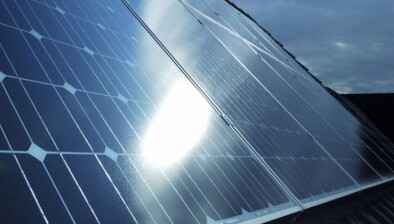Funding pulled for Green Deal home efficiency programme

The UK government’s flagship ‘Green Deal’ home energy efficiency programme is to fold as ministers announced they were pulling its funding.
The Department of Energy and Climate Change (DECC) said there would be no further funding for the Green Deal Finance Company, which delivers the programme, in light of low take-up and concerns about industry standards.
There will also be no more funding for the Green Deal Home Improvement Fund cash back scheme, which gave households money back on home energy efficiency improvements.
Measures have been installed in around 10,000 properties under the Green Deal scheme, in which providers meet the upfront costs of installing efficiency measures and householders pay the money back from savings they make on their energy bills.
Yesterday’s announcement does not affect existing Green Deal plans taken out by householders or existing Green Deal Home Improvement Fund applications and vouchers, DECC said.
Under the energy efficiency programme, which has been running for around two-and-a-half years, householders could avoid the upfront costs of insulation, efficient heating systems, draught proofing, double glazing and renewable energy generation such as solar panels, paying back the cost of their installation with savings on bills.
But the loans were too expensive, the scheme was frequently changed and householders did not take up the finance plans at the expected rate.
The latest figures up to June 2015, showed there were 9,999 ‘live’ Green Deal plans, where all measures had been installed in a home, and a further 5,597 in process.
Tens of thousands of vouchers have been issued under the Green Deal Home Improvement Fund, with payments worth £114 million paid out to finance 27,140 measures. A total of £171m has been committed under the fund.
Energy and climate change secretary Amber Rudd said: “We are on the side of hardworking families and businesses - which is why we cannot continue to fund the Green Deal.
“It’s now time for the building industry and consumer groups to work with us to make new policy and build a system that works.
“Together we can achieve this government’s ambition to make homes warmer and drive down bills for one million more homes by 2020 - and to do so at the best value for money for taxpayers.”
The Energy Company Obligation (ECO), which requires suppliers to provide energy saving measures to vulnerable and low-income households, with the money recouped on consumer bills, will continue this year.
Fuel poverty and environmental campaigners have called on the government to make energy efficiency a national infrastructure priority, to help cut climate emissions, save money on their bills and improve health by stopping people living in damp, cold homes.
Julie Hirigoyen, chief executive of the UK Green Building Council, said the government’s strategy for cutting high energy bills through energy saving measures such as insulation was now “dead in the water”.
“With each passing day, this government puts an end to another green policy. Government’s strategy on dealing with high energy bills through home energy efficiency is now dead in the water.”
She said the Green Deal scheme was finally becoming established just as it was pulled.
“This is yet another announcement with no forewarning that will leave the energy efficiency industry battered and bruised.”
Ed Matthew, of the Energy Bill Revolution, said the Green Deal had clearly failed in its current form but should be reformed, not scrapped.
“The UK has among the worst-insulated homes in western Europe and as a result we waste huge amounts of energy.
“Zero interest loans to make homes energy efficient would be far more popular and could generate more tax revenue for the Treasury than it costs to subsidise.”
And he said: “The government needs to make home energy efficiency an infrastructure priority.
“The Treasury plans to invest £100 billion in infrastructure over the next five years. Just a tiny proportion of this investment could help insulate millions of UK homes and drive down energy bills in the most cost-effective way.”





















